Social media strategies for healthcare in the UK
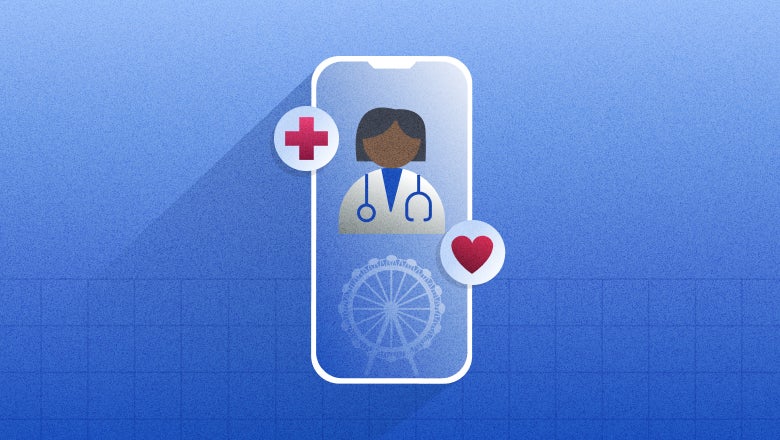
Table of Contents
The healthcare industry has always thrived on effective communication. Since the COVID pandemic, public and private providers have begun to recognise the fundamental way social media in healthcare practices can boost those communication efforts.
The UK’s healthcare landscape has its own unique strengths and regulations, thanks to the National Health Service (NHS) and several world-leading public health charities. Each of these institutions, as well as private companies, can benefit from using social media as a widespread communications tool.
We’ve outlined some of the leading social media healthcare strategies today, with a specific focus on UK health. Applied effectively, these strategies can help raise public awareness, realise ROI and improve the reputation and reach of healthcare entities nationwide.
What is the role of social media in healthcare?
Social media plays a pivotal role in healthcare communications. It fosters connections, gets timely information to patients and gives people reliable information that encourages preventative behaviours. Social media networks are also an accessible way for patients to gain direct support from charities or professionals for their physical or mental health needs. Beyond patient communication, these networks are proving essential in addressing the growing demand for healthcare staff, offering new ways for organisations to connect with potential recruits.
A recent and lasting example of how social media can be used to communicate at scale was the COVID pandemic, where over 90% of the UK population was vaccinated, thanks in part to information shared via social networks.
What are the regulations around social media use in UK healthcare?
Before using social media in healthcare practices, you must understand how this type of marketing is regulated in the UK.
Adhering to GDPR and patient confidentiality rules
All healthcare social media communication must follow GDPR guidelines. These are the UK’s data protection laws and they’re designed to keep people’s personal data protected.
Since healthcare can be such a personal and sensitive topic for most people, there are additional data protection rules you’ll need to follow if you’re posting on socials. You must follow the UK’s patient confidentiality guidelines. This is vital if you’re posting certain types of content, like patient success stories.
Regulations in UK healthcare marketing
Healthcare marketing is subject to further regulations in the UK. In March 2025, the NHS published its updated guidance document for social media use. This document outlines how NHS practices should be using social media, as well as pitfalls that social media managers should avoid. Other organisations like the Health Research Authority also have their own guidelines.
The UK also has strict rules about how medicine can be advertised. If you’re posting about specific medications, you need to follow the PMCPA’s Social Media Guidance. These guidelines make sure your content is transparent and responsible, and includes specific advice on activities like working with healthcare influencers.
What are the challenges of healthcare communication in the UK?
Though social media in healthcare can have several significant benefits, it can be detrimental if the process is mismanaged. Challenges to successful social media communications include:
- Requests for personal advice: UK healthcare professionals can’t provide personalised health advice through social media. Advice must instead be given through official channels, where it is properly documented.
- Misinformation: Healthcare content can also be subject to negative reactions or, in the worst cases, conspiracy theories which spread misinformation. A key part of managing a successful healthcare social account is learning how to manage these negative engagements and address misinformation.
Now that you’re aware of these regulations, we’ll outline some of the top strategies and platforms available today.
7 strategies for healthcare social media marketing in the UK
The following strategies will help you improve your social media healthcare communications in the UK. Each revolves around different content approaches or community management tactics that can boost your account’s appeal.
Educational and informative content
One way of approaching healthcare social content is to see it as a form of edutainment. You should be creating content with the primary goal of informing your followers or raising awareness around a specific topic. This includes content to combat misinformation specifically; The 2025 Sprout Social Index™ found that 93% of consumers now expect brands to be doing more to combat misinformation than they are already. This is particularly important in healthcare, where you have a more significant obligation to provide accurate information. Alongside education, your secondary goal should be to make this education as engaging as possible.
Focus each update around one message, like explaining warning signs for a condition or debunking misinformation. Then, think about how you can present it in a way that grabs attention, whilst not taking away from this core message. Here’s an example from the charity Diabetes UK, which has used Instagram to inform followers about health checks.
Using data and infographics to simplify complex healthcare topics
Marketing infographics can be a simple way of adding visual flair to your healthcare social content. They can help visual learners digest your information and get your overall message across more effectively.
Here’s a recent example from the NHS’s Instagram page about hayfever prevention.
Storytelling through patient experiences and success stories, encouraging user-generated content and testimonials
As long as they follow patient confidentiality laws, individual patient testimonies or success stories can be a great way of showcasing how your practice or charity is helping people. Here’s a recent example from the Royal Papworth Hospital.
By encouraging user-generated content (UGC), you can build a more widespread campaign that raises awareness about successes in certain medical fields; one viral example of this is the ALS Ice Bucket Challenge.
If you’re planning a wide-reaching campaign like this, Sprout’s social listening tools can help. Use social listening to uncover trends in your followers’ messages, and then apply these trends to a UGC campaign.
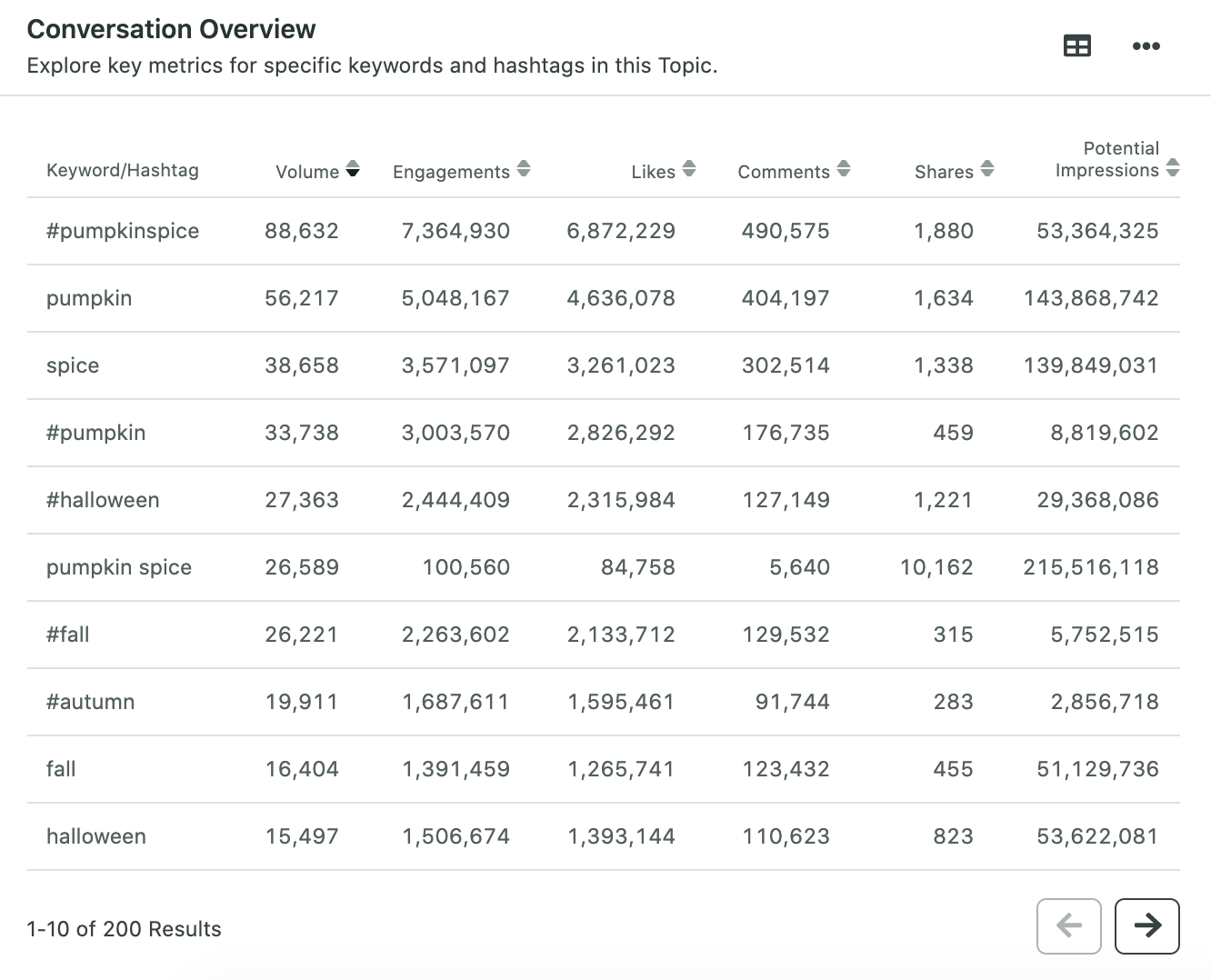
Collaborations with healthcare influencers and patient advocates
UK healthcare influencers are a growing subcategory of influencers. They’re usually healthcare professionals, and share health-conscious content and preventative medical advice to their followers. One of the biggest current examples is former Love Island contestant Dr Alex.
Partnerships with influencers like this can extend awareness for your campaigns and get important healthcare messages out to more people.
Another approach is to partner with influencers who share their stories about living with certain health conditions; these influencers will have a similar audience to your own, and can become patient advocates. One example is Sophie Morgan, a UK influencer and travel writer who writes a monthly “Beyond Barriers” column on accessibility for wheelchair users.
Because of the regulations involved, any UK healthcare influencer campaign has to be managed effectively. The most important stage is finding the right influencer for your content.
AI-based tools like Sprout Social Influencer Marketing help ease this challenge. You’re able to find an authentic influencer through its AI-powered discovery and data analysis. Plus, you can use over 50 search filters to identify influencers who are the closest match to your brand values and target audiences. And once your influencer marketing campaigns are off the ground, you can also use the platform to manage relationships, track performance and measure ROI.
Highlighting campaigns and initiatives
If you’re struggling for healthcare content ideas, one reliable strategy is to use your content to highlight ongoing campaigns. These can include vaccination drives, or countrywide awareness events like Mental Health Awareness Week.
Pairing your content with an initiative or event gives it a clear message and purpose. It also encourages you to create a content calendar around these events, which makes managing your socials easier over time. Use a social media calendar tool like Sprout Social to optimise this process even further by visualising all of your accounts and planned content updates on a single calendar.
Live Q&A sessions with healthcare professionals
Though healthcare professionals can’t give personalised advice on socials, they can offer generalised guidance. This includes information like symptoms, preventative measures or advice on how to lead a healthier life.
By organising a Q&A with one of your professionals, you can encourage more direct engagement from your followers. You’ll also boost the reputation of your staff, which can positively impact your practice over time.
Community management including virtual groups for patient support
Responding to followers and managing your social community is important regardless of the type of social account you manage, but it’s particularly crucial in healthcare. Create virtual groups to support patients with general advice and guidance.
These groups are particularly important for any providers or charities specialising in mental health. For example, the UK charity Samaritans has started to trial a live chat version of its phone line service to support people online.
Top social media networks for UK healthcare social media marketing
Deciding which social network to use is often the first step for social media marketers. These networks all offer different benefits for anyone managing a UK healthcare account.
X (Twitter): For real-time updates and public health news
X can be useful for healthcare providers who often share breaking news with patients and the public. This makes it particularly important for the NHS and government institutions, but it offers similar benefits for regional charities and larger public health companies.
Thanks to its focus on immediate news, X is also useful for accounts focused on time-sensitive health campaigns or pairing content with countrywide events. NHS England recently posted on X to commemorate Windrush Day in the UK.
Facebook: For community groups and patient engagement
Facebook is the most popular platform option in the industry at the moment; Sprout’s 2025 Social Media Healthcare Benchmarks found that 92% of providers have a Facebook account.
With its focus on groups and communities, Facebook is a useful platform for healthcare providers looking to communicate and engage their patients. This is particularly important for regional accounts or charities that rely on public donations.
The Sheffield Children’s Hospital meets both those criteria, and uses its Facebook account to promote the hospital, share fundraising events and showcase patient successes. Here’s a recent post where they included a survey, which promotes direct engagement from their followers.
Part of managing a Facebook community involves responding to messages and comments. To get ahead of this process, prepare a proactive strategy. Sprout’s Social Customer Care feature helps you prioritise responses, so your social team can build faster and more authentic connections with your Facebook followers.
Instagram: Visual storytelling and wellness tips
With its focus on images and reels, Instagram is designed for healthcare accounts that use visuals to communicate their message. It’s well-suited to infographic content for information like preventative measures and wellness tips.
Switchboard is a UK charity that supports LGBTQ+ people with their mental health. They recently created a collaborative post with another charity, Just Like Us UK, to promote their support service using data and an infographic.
If you’re having trouble writing captions for your Instagram content, Sprout’s AI Assist tool quickly generates a draft you can edit to match your requirements and fact-check before publishing. Sprout also enables you to track your individual content performance and engagement rate across Instagram, so you learn what’s working and adapt your strategy.
YouTube: Educational videos and patient testimonials
YouTube allows UK healthcare providers to share long-form videos, which can be useful as either educational tools or as a way of sharing more in-depth patient stories. Many larger charities also use YouTube to post their television adverts, to increase their circulation and reach.
There are plenty of opportunities to get creative with healthcare YouTube content. Sprout’s 2025 Social Media Healthcare Benchmarks Report found that originality was users’ second favourite part of social media content, so it’s important for account managers to get creative and embrace original ideas.
Mental health charity Mind created a “Behind the Song” series of YouTube content, where they interview musicians and ask them what thoughts were behind some of their hit songs. These videos help destigmatise mental health and allow Mind to reach younger demographics with their YouTube account.
TikTok: Supportive advice from professionals
Healthcare content is an increasingly important part of UK TikTok. There’s even a specific community, #HealthTok, that’s made up of several niches where creators, professionals and brands discuss health and wellness. Healthcare charities can also contribute by providing accurate, professional advice.
To support public health on the network, TikTok UK recently launched a Clinician Creator Network of professional accounts sharing accurate advice in their content. You can collaborate with one of these verified influencers to further your reach on TikTok.
If you’re creating TikTok content yourself, make sure everything is data-driven and factual. Don’t give personal advice, instead, share general information that can help everyone on the platform.
Examples of healthcare and social media marketing campaigns in the UK
We’ve shared a few examples of successful social posts above, but here are a few more organisations that regularly use social media to their advantage.
NHS Cheshire and Merseyside Public Health Campaigns
Alongside its main account, individual NHS hospitals and regional authorities are encouraged to manage accounts of their own. This helps the organisation provide region-specific advice and news to people in the UK, through event announcements, local authority information and other updates.
They also host a list of campaigns on their website. This regionality shows a clear understanding of the account’s target audience. By focusing content on location and grouping with wider NHS initiatives, the account can provide information specifically catered to people living in the area.
Cancer Research UK
Cancer Research UK is one of the country’s largest charities, and they manage several of their own social accounts. But their approach to UGC is particularly successful.
The charity hosts a page on their website titled “Spread the word on social media”, where they host badges and images. Each of these can be customised and then shared to promote fundraising activities on social networks.
This evergreen UGC campaign helps people raise money for the charity, and encourages further reach for them. It also helps individuals raise awareness for cancer research and the vital work researchers continue to do to find a cure.
Mental Health Foundation UK
The UK’s Mental Health Foundation (MHF) is very active on socials, with over 220k Instagram followers and 340k on Facebook, among other platforms. A key part of its social strategy is promoting the organisation’s Mental Health Awareness Week.
The charity has been organising the nationwide awareness week for over 25 years. It’s a core part of their annual content strategy and is now also a key part of the UK’s awareness events calendar. By continuing to promote the event, MHF can further the reach of their message, whilst also increasing awareness about the charity itself.
Kinvara Private Hospital
Though the UK has the NHS and state-subsidised healthcare for all, it also hosts many private practices. To stand out from other private providers, private hospitals, dental clinics and treatment companies can leverage the reach and engagement offered by social media.
Kinvara Private Hospital is one example of this approach. They’re a private hospital in Rotherham and regularly post on Facebook and Instagram. Here’s an example of a recent patient testimonial post on their Instagram.
The future of social media in UK healthcare
Social media can be a transformative force for UK healthcare providers. Its ability to provide a channel for time-sensitive communications and regional support means it can continue to provide substantial benefits as these networks continue to grow.
If you’re just starting your social media in healthcare journey, or you’re looking to refine your strategy, tools like social listening and content performance reports can make your job much easier. Explore these and many more of Sprout’s features for free by scheduling a demo.

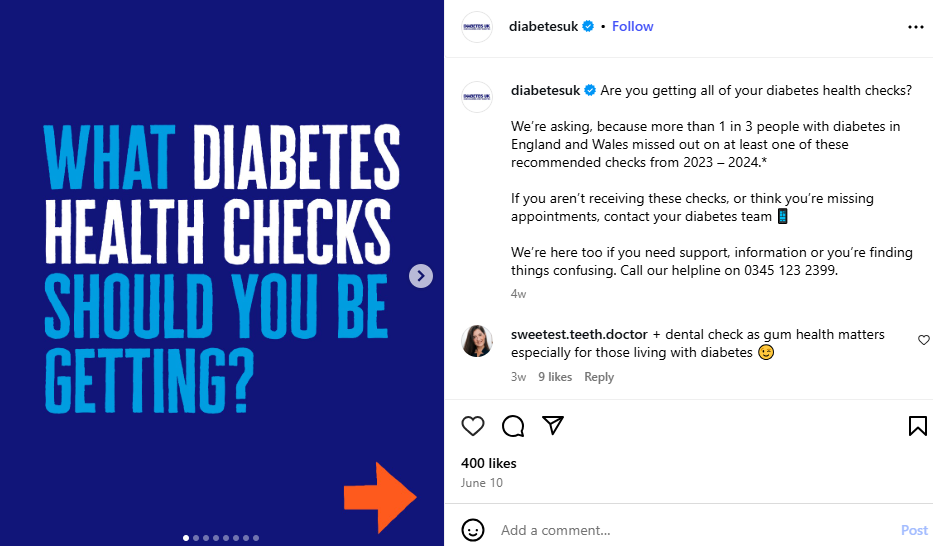
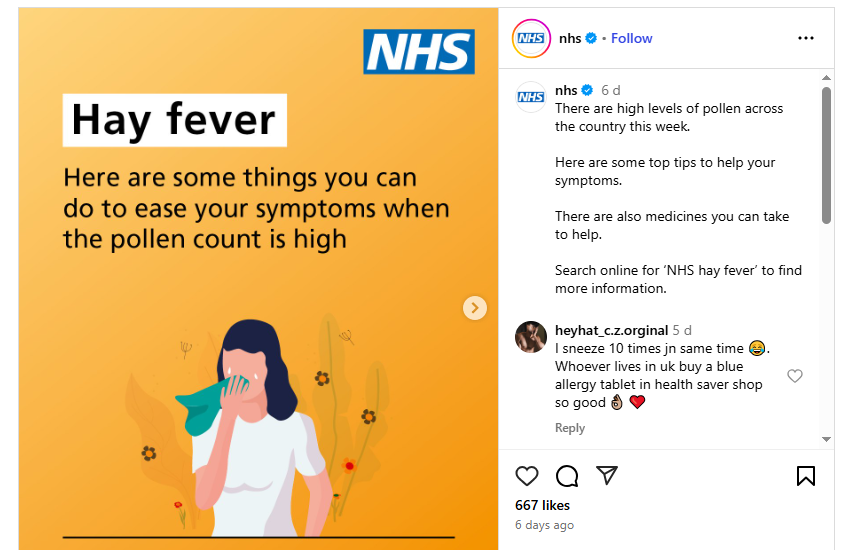
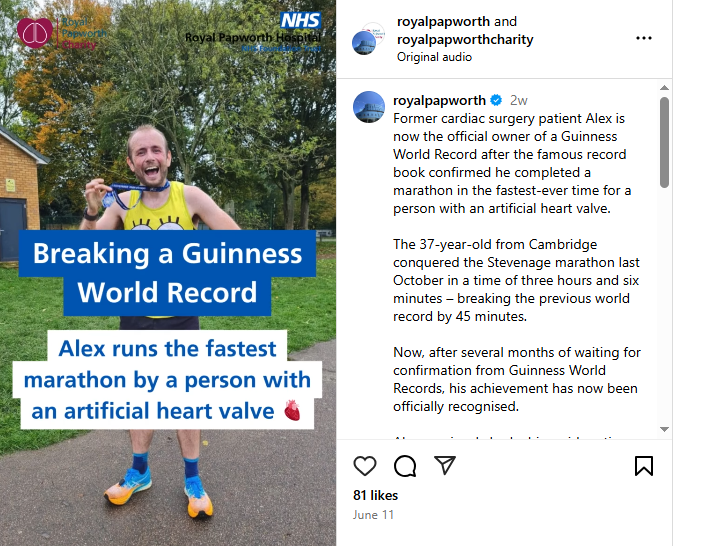
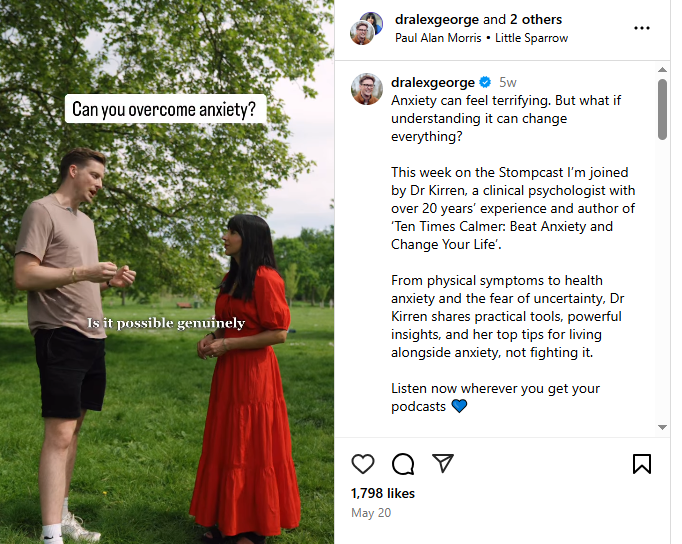

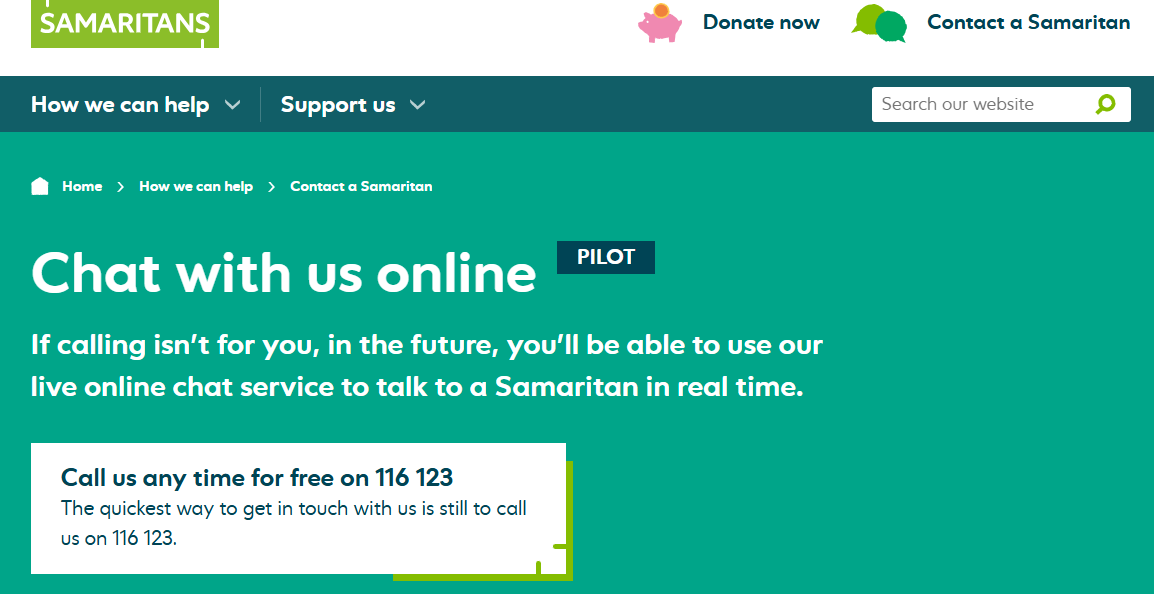
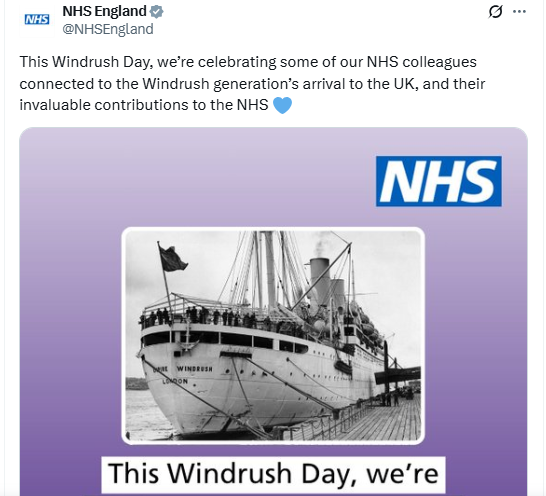
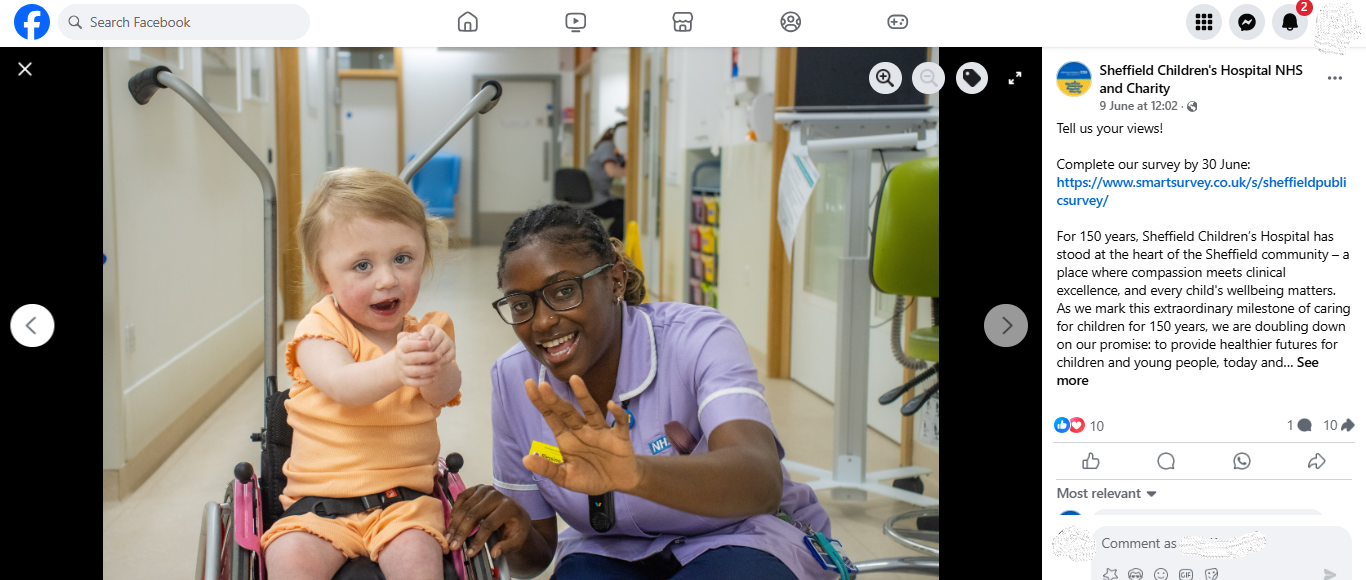
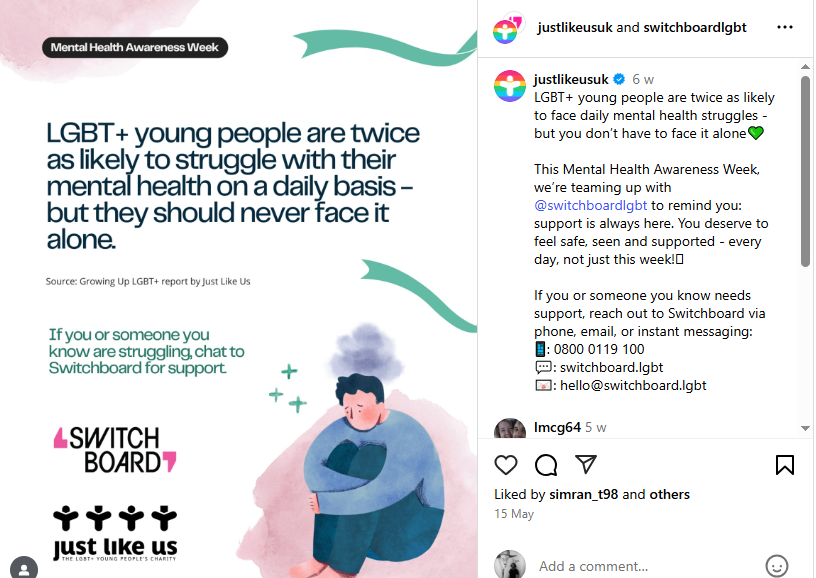

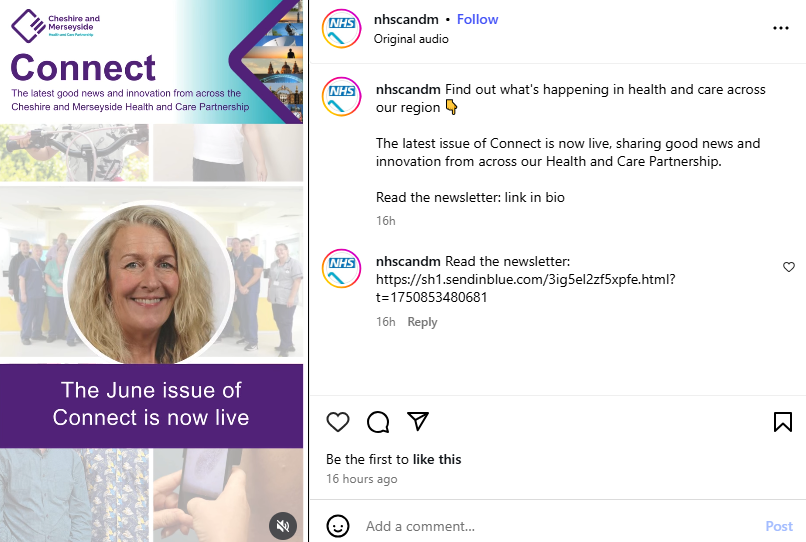
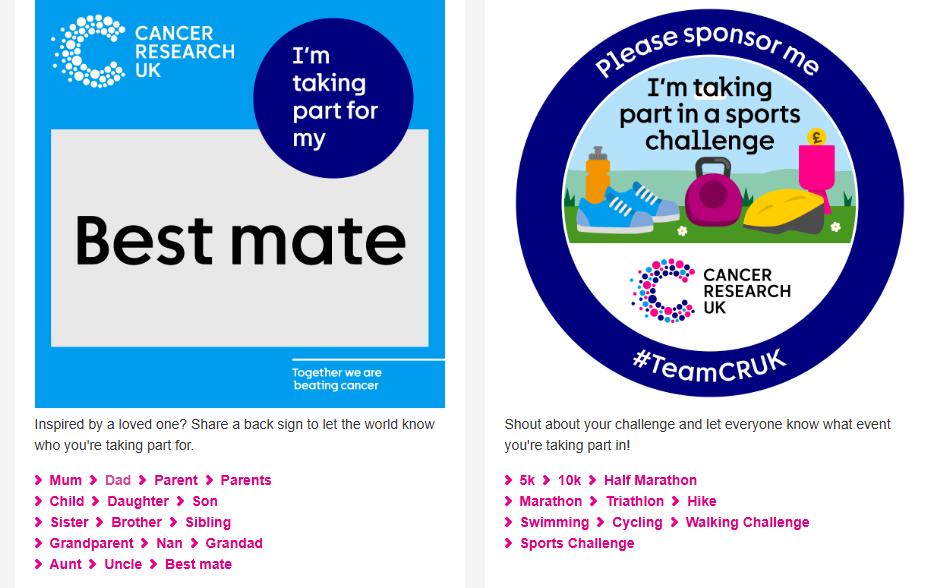
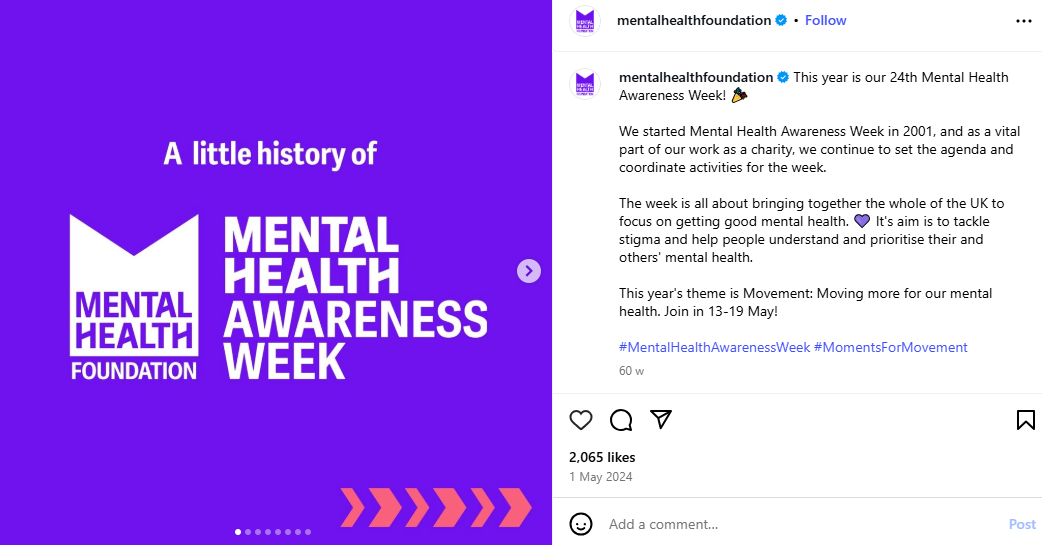
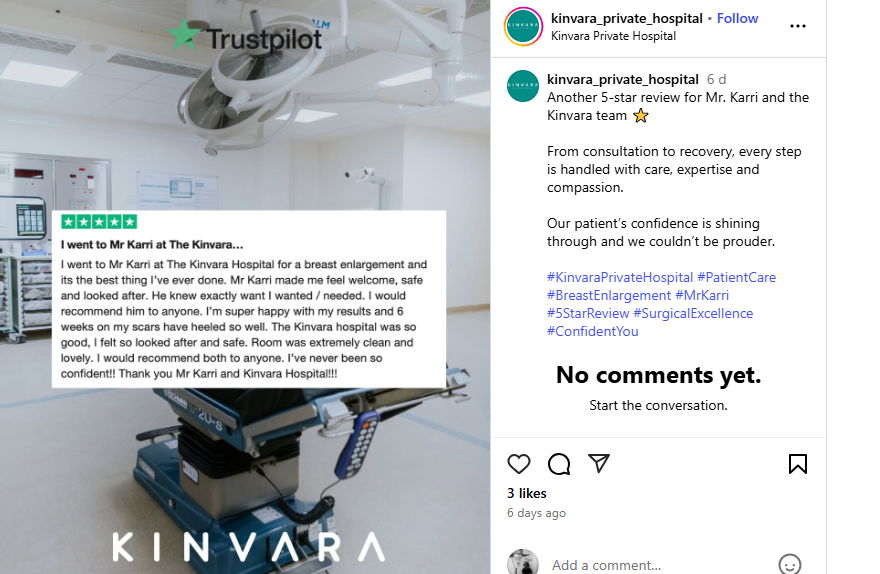


Share